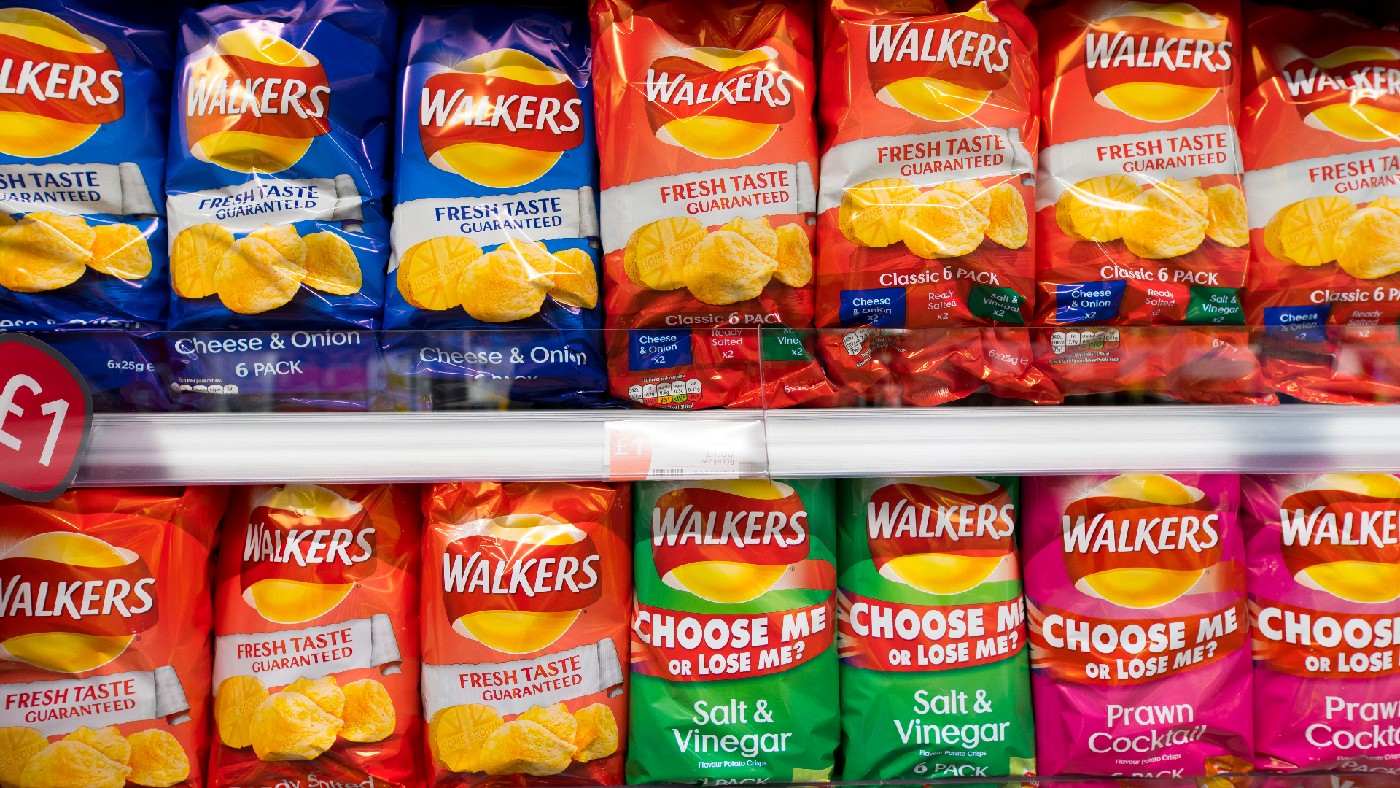Is the UK ready for a new industrial revolution?
Reshaping the post-Brexit economy could deliver huge benefits - but only with greater ambition from government, says a new report

A free daily email with the biggest news stories of the day – and the best features from TheWeek.com
You are now subscribed
Your newsletter sign-up was successful
A new industrial revolution could reshape Britain’s manufacturing sector, unlock £445bn and create thousands of new jobs, according to a report on a radical way forward for the country’s post-Brexit economy.
An independent review led by Jurgen Maier, the British boss of engineering giant Siemens, recommends a deal between government and industry to put Britain at the forefront of new technologies such as robotics, artificial intelligence, 3D printing, and virtual reality.
Writing in The Daily Telegraph, Maier said: “The Government’s industrial strategy will need a red thread of digital running through its core. It will not be about reviving long gone industries but rather it will be about building the new ones.”
The Week
Escape your echo chamber. Get the facts behind the news, plus analysis from multiple perspectives.

Sign up for The Week's Free Newsletters
From our morning news briefing to a weekly Good News Newsletter, get the best of The Week delivered directly to your inbox.
From our morning news briefing to a weekly Good News Newsletter, get the best of The Week delivered directly to your inbox.
Written after an eight-month consultation with more than 200 companies, including Rolls Royce and Accenture, as well as leading universities, the proposals include a programme to re-skill workers, tax incentives for manufacturing firms, establishing 12 digital research centres to improve innovation and capability - and a national commission on industrial digital technologies.
Maier says this could generate hundreds of billions of pounds for the economy, create 175,000 highly skilled jobs and serve as an “antidote” to some of the tough challenges and higher costs facing the manufacturing sector as a result of the Brexit vote.
Many analysts have warned the threat of Brexit, combined with the rise of automation, could destroy the country’s remaining manufacturing base. While the sector has declined in most advanced countries over the last 30 years, “the UK has seen a particularly marked drop-off”, says The Independent. Manufacturing made up 20% of the UK economy in 1990, compared to just 10% in 2015.
While highlighting the huge possibilities afforded by a new industrial revolution, Maier told the BBC’s Today programme the UK needed “greater ambition” to take advantage of such technology and said a huge number of workers would need to be retrained, as those who failed to adapt would lose their jobs.
A free daily email with the biggest news stories of the day – and the best features from TheWeek.com
“On the one hand it is going to create productivity and more exports and through that we can create more jobs but at the same time robotics and artificial intelligence will displace some jobs,” he said. “We need to upskill one million existing workers in the industrial and manufacturing sector... so they can transition from tasks that might be displaced to, for example, managing or programming robots.”
Backing the proposals, CBI director-general Carolyn Fairbairn reiterated the threat Britain faced from international competitors.
“The UK must compete with China, the USA and much of Europe where there are already advanced plans to embrace the fourth industrial revolution,” she said.
Writing on Conservative Home, Tory MP Alan Mack said a post-Brexit Global Britain must look to the likes of China, whose own “Made in China 2025” programme is designed to upgrade Chinese industry to harness new technologies.
“As the [new industrial revolution] accelerates, we must remember the lessons of the past” he said, “early adopters and fast-moving nations will be rewarded, while countries that fall behind will feel the consequences for centuries to come”.
“China views the race for success in the [new industrial revolution] in global terms, and in Britain we must do the same.”
-
 Political cartoons for February 20
Political cartoons for February 20Cartoons Friday’s political cartoons include just the ice, winter games, and more
-
 Sepsis ‘breakthrough’: the world’s first targeted treatment?
Sepsis ‘breakthrough’: the world’s first targeted treatment?The Explainer New drug could reverse effects of sepsis, rather than trying to treat infection with antibiotics
-
 James Van Der Beek obituary: fresh-faced Dawson’s Creek star
James Van Der Beek obituary: fresh-faced Dawson’s Creek starIn The Spotlight Van Der Beek fronted one of the most successful teen dramas of the 90s – but his Dawson fame proved a double-edged sword
-
 Can the UK avoid the Trump tariff bombshell?
Can the UK avoid the Trump tariff bombshell?Today's Big Question President says UK is 'way out of line' but it may still escape worst of US trade levies
-
 Five years on, can Labour's reset fix Brexit?
Five years on, can Labour's reset fix Brexit?Today's Big Question Keir Starmer's revised deal could end up a 'messy' compromise that 'fails to satisfy anyone'
-
 Why au pairs might become a thing of the past
Why au pairs might become a thing of the pastUnder The Radar Brexit and wage ruling are threatening the 'mutually beneficial arrangement'
-
 Brexit: where we are four years on
Brexit: where we are four years onThe Explainer Questions around immigration, trade and Northern Ireland remain as 'divisive as ever'
-
 Is it time for Britons to accept they are poorer?
Is it time for Britons to accept they are poorer?Today's Big Question Remark from Bank of England’s Huw Pill condemned as ‘tin-eared’
-
 Is Brexit to blame for the current financial crisis?
Is Brexit to blame for the current financial crisis?Talking Point Some economists say leaving the EU is behind Britain’s worsening finances but others question the data
-
 How Brexit handed a ‘financial boon’ to former Soviet state Estonia
How Brexit handed a ‘financial boon’ to former Soviet state EstoniaIn Depth Around 4,000 companies have set up shop in member state since UK left EU, prime minister says
-
 Why the UK is suffering a Walkers crisps shortage
Why the UK is suffering a Walkers crisps shortagefeature Production issues have forced snack giant to prioritise most popular varieties